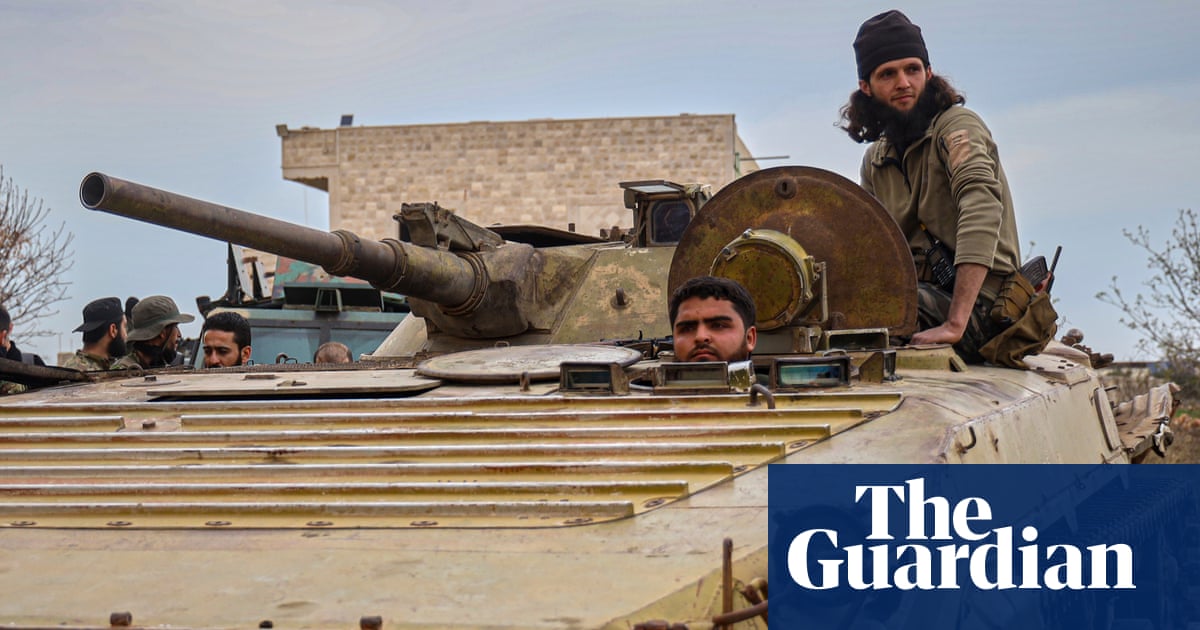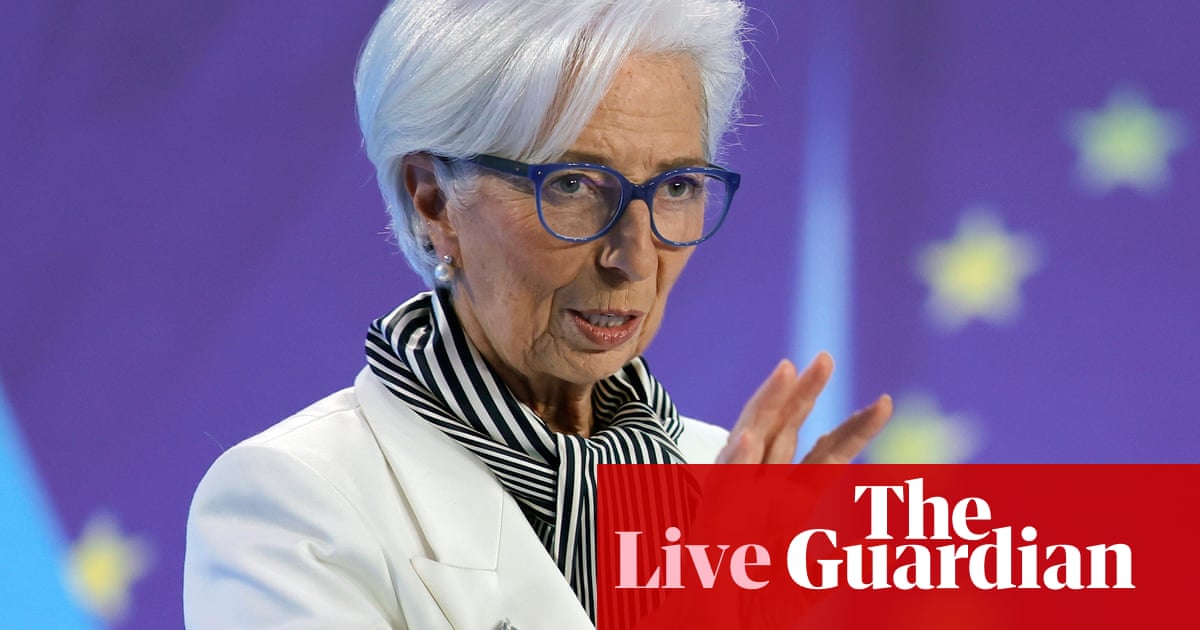Hidden trails snake through the mountains in Lebanon’s eastern Bekaa valley, the furrowed earthen paths veering off before entirely disappearing into the mountainside scrub. “That’s Syria,” said Haidar, a smuggler using a pseudonym, tracing with his finger the contours of a route that if followed for about half a mile would cross the borders of Syria and Lebanon with authorities being none the wiser.
In the remote Lebanese village of Qasr, borders are just a suggestion. The town sits a stone’s throw from Syria and save for three soldiers manning an army checkpoint at the entry to the village, the presence of the Lebanese state is minimal.
The people of Qasr and the villages that straddle both sides of the nearly 248 mile-long (400km) Syria-Lebanon border were for decades in business together. Authorities in Assad’s Syria profited from the flow of weapons, drugs and fuel over the border, and its ally in Lebanon, the Iran-backed Shia militia Hezbollah, relied on routes used by smugglers to receive weapons coming from Iran.
But after the Syrian president Bashar al-Assad was ousted by Syrian rebels on 8 December and a war-battered Hezbollah lost its grip over the Lebanese state, authorities in both countries have sought to reassert control over their borders and crack down on smuggling.
The attempt to seal the porous border has disrupted the decades long smuggling trade between Syria and Lebanon and has turned local tensions into deadly international military incidents.
On 16 March, three Syrian soldiers were killed in Lebanese territory, prompting the Syrian army to begin to pummel Qasr and surrounding villages with artillery. Smuggling tribes in the villages returned fire and the Lebanese army also responded to Syrian rockets, with a ceasefire agreed a day later.
In all, three Syrians and seven Lebanese were killed on both sides, while another 52 were wounded in Lebanon.
It was the second time in a month that clashes had erupted between Syria and Lebanon. Syrian authorities blamed Lebanon’s Hezbollah for the skirmishes, claiming it had infiltrated Syrian territory, kidnapped three Syrian soldiers and killed them. Hezbollah denied any involvement.
Lebanese people painted a very different story, of a new Syrian army that did not yet know the lay of the land, and of a local dispute that escalated quickly.
A member of the Lebanese Jaafar tribe, an influential smuggling clan that controls many of the routes in the area, said: “Three Syrian soldiers [were] walking, and stepped on Lebanese land by accident. They ran across a shepherd who got scared and called his relatives, who killed the soldiers immediately.”
He described how tensions have been running high between the people of Lebanese border villages and the new Syrian authorities. “Smugglers are scared to go to Syria now, they don’t feel there’s security,” he said.
Many Lebanese living in towns on the Syrian side of the border for decades fled after the fall of Assad for fear of the new authorities. One 68-year-old farmer who was born and raised in Syria said his land had been taken from him in December, so he fled to Qasr.
Arms have poured into Lebanese border towns after Assad’s troops abandoned their posts, leaving weapons ranging from rifles to light artillery by the roadside. The Jaafar family member said it was now common to find Kornets, a Russian anti-tank guided missile, in Qasr – and that they were quite cheap, too.
When Syrian artillery fire started on Qasr and the surrounding area, tribes such as the Jaafar family took up arms to defend the town – and arms they had aplenty. A video of an al-Arabiya correspondent inside Syria during the clashes captured the moment a rocket was shot from the Lebanese side, slightly injuring the reporter.
Many people in Qasr are members of Hezbollah – the group announced four of its fighters were killed in the clashes – although residents insisted the militia did not direct the battle, but rather fighters participated as members of the town.
Experts say the relationship between smugglers and Hezbollah is more of a partnership, rather than the tribes that engage in smuggling being under the Lebanese group’s control.
Joseph Daher, the author of Hezbollah: The political economy of the party of God, said: “Most of these clans are politically covered and have connections with Hezbollah. Hayat Tahrir al-Sham (HTS) [the Islamist authority that rules Syria] is trying to strengthen its controls at the border, especially targeting clans affiliated with Hezbollah.”
The Lebanese state has also been keen to strengthen its control over the Syria-Lebanese border, eager to show western powers it is preventing weapons from reaching Hezbollah. Before the fall of the Assad regime, the Lebanese group would receive weapons shipments via Syria through the Bekaa valley.
Despite the clashes, business is business. Smugglers say the flow of illicit goods has continued after the fall of Assad. “Publicly, [HTS] is saying they want smuggling to stop, but they need our goods. Business doesn’t have an identity,” said a second member of the Jaafar family. The new Syrian authorities have regularised and decreased the fees they charge smugglers, he said, as Syria desperately needs Lebanese fuel and diesel as western-led sanctions have throttled its ability to import them.
The only goods smugglers can no longer traffic are drugs. The factories that used to produce the popular amphetamine captagon were run by the now deposed Assad regime and smuggled through the Bekaa valley to be exported via Lebanon’s ports. Syria’s new authorities have cracked down on the narcotics trade.
Lebanon’s smugglers and Syrian officials are still getting to know one another. Gone are the fourth armoured division soldiers under the control of Maher al-Assad, the brother of Syria’s ousted president, which used to control the Syrian side of the smuggling routes.
The introduction is off to a rocky start. As the Jaafar clan member was speaking, bursts of machine-gun fire erupted, followed by the dull thuds of rocket-propelled grenades fired by the Syrian authorities at a neighbouring village.
“If the ceasefire continues then we won’t attack them and they won’t attack us. But it seems we are entering a cycle of violence and revenge,” he said.










